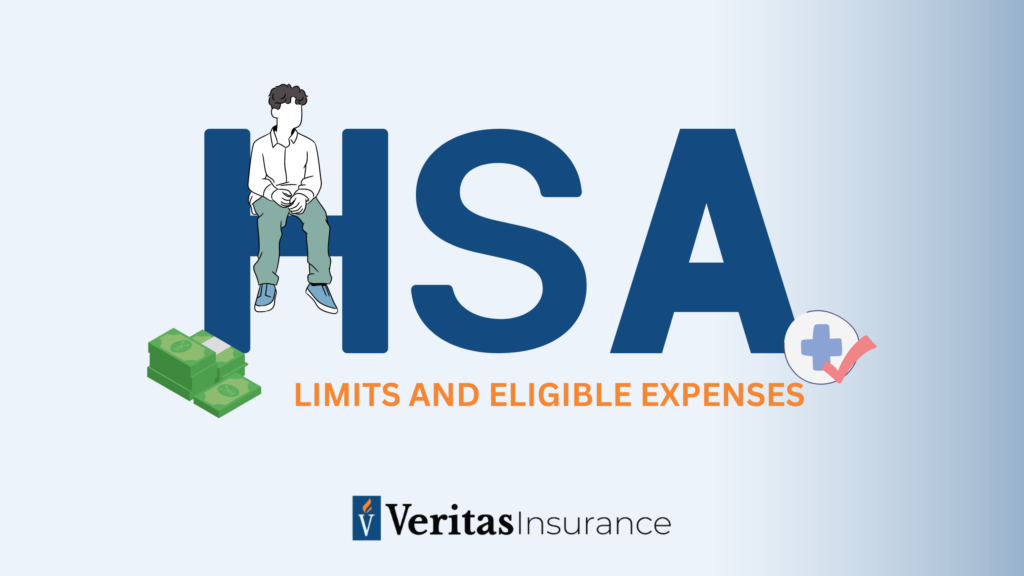Healthcare expenses can be a significant burden on an individual’s finances. Health Savings Accounts (HSAs) are a valuable way to save money and receive tax benefits. These accounts allow you to save and invest funds for qualified medical expenses. However, it’s important to understand the limitations associated with HSAs. In this article, we’ll explore the limits of an HSA, including eligible expenses, contribution limits, and recent updates to HSA rules.
HSA Contribution Limits
In 2025, an individual with self-only coverage may contribute up to $4,300, which is a 3.6 percent increase from 2024. A family may contribute up to $8,550.
If both spouses in a family are 55 or older and eligible to contribute to a Health Savings Account (HSA), they can contribute a total of $10,550. This is comprised of the standard family contribution limit for 2025, and an additional “catch-up” contribution of $1,000 for each spouse who is age 55 or older, resulting in an extra $2,000 total in catch-up contributions for the couple.
Important note: Each spouse must have their own individual HSA to make their separate $1,000 catch-up contributions. They cannot simply add both catch-up contributions to a single family HSA account.
Eligibility for HSA contributions requires enrollment in an HSA-eligible High Deductible Health Plan (HDHP), and you can not be enrolled in Medicare.
The jump in the contribution limits is significantly less than the roughly 7 percent increase seen from 2023 to 2024.
Contributions to an HSA are tax-deductible, and funds in the account grow tax-free. Additionally, they come out tax-free as long as they are used for qualifying medical expenses. This makes HSAs a beneficial way to save money for medical expenses. Just remember, that once you start taking Part A of Medicare, you are no longer able to contribute.
Long-Term HSA Use
Another benefit of HSAs is that you are able to invest your HSA funds using investment options. Many different companies make this available. HSA funds do not need to be used in the year of deposit, so that means they are in your control. As a result, you can take money out years later to offset a qualified expense. If you do not use the funds, you are able to take them out and they are treated like an IRA during retirement, or you can continue to use them for medical expenses even when you are on Medicare.
Eligible HSA Expenses
Common Medical Expenses
HSAs cover common medical expenses, including prescription drugs, eyeglasses, eye exams, and dental expenses. However, it’s worth noting that certain expenses, such as midwife services, are not covered by HSAs. The Internal Revenue Service’s Publication 502 provides a comprehensive list of qualified medical expenses that are eligible for coverage under an HSA.
Long-Term Care Premiums
In addition to standard medical expenses, account holders can use HSA funds to pay for long-term care premiums. This is an excellent way to utilize HSA funds if account holders have a surplus in their account.
Cares Act Provisions
Under the Cares Act, passed in March 2020, HSA funds can also be used to pay for over-the-counter medicines and vitamins, provided they are recommended by a physician for a specific medical condition. This includes medicines for cold and flu symptoms, nasal spray, pain relievers, and stomach medication. Account holders can also use HSA funds to purchase a humidifier, as it is used to relieve an immediate medical issue.

Open a Health Savings Account
HSAs provide an effective means of saving for medical expenses while obtaining tax benefits. Account holders are encouraged to consult the IRS Publication 502 for additional information regarding qualified medical expenses, and to take advantage of the catch-up contribution option if they are over the age of 55. Most banks and credit unions offer HSAs, in addition to many investment firms.
If you have any questions about HSA limits and eligible expenses, or would like to open an HSA, our Johnson City, Tennessee team would be happy to assist you. Visit our online service center or give our office a call to speak with a local agent.
Closing word of Warning about Health Sharing Plans
If you are enrolled in a Health Sharing Plan or Medical Sharing Plan, the IRS says you CAN NOT put money into a an HSA. You may ask why, well in addition to the simple answer being, “It’s the government, why would it make sense,” the IRS does have rules about HSAs and one of the rules says that you must be enrolled in a High Deductible Health Plan and since Health Sharing Plans are not “Insurance” plans, that is the portion of the law that says, “No.” For more information about Health Sharing Accounts and their Pros and Cons, check out our blog. For more information about the tax advantages of an HSA in TN, click here.



